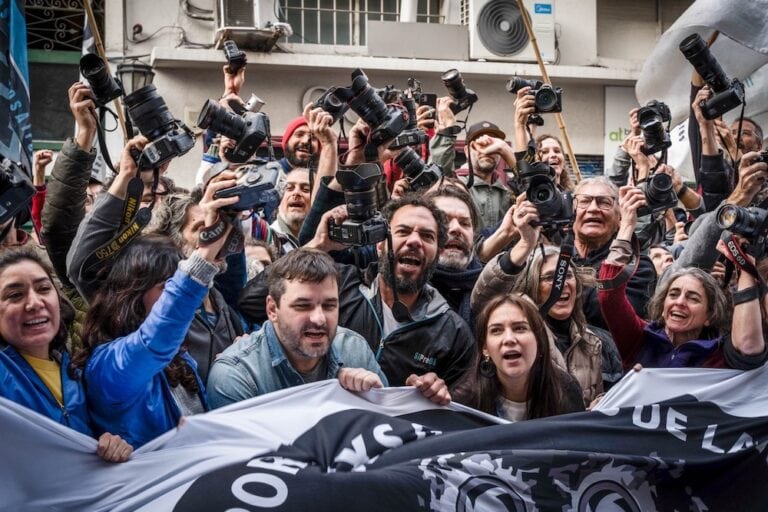(PFC/IFEX) – On 13 March 2003, the Supreme Court ruled that it would hear a complaint presented by the newspaper “Rio Negro” against the governor of Neuquén province regarding the withdrawal of government advertising. The case will open on 10 April. “Rio Negro” is to present an estimate of the losses it has suffered due […]
(PFC/IFEX) – On 13 March 2003, the Supreme Court ruled that it would hear a complaint presented by the newspaper “Rio Negro” against the governor of Neuquén province regarding the withdrawal of government advertising.
The case will open on 10 April. “Rio Negro” is to present an estimate of the losses it has suffered due to the government’s action.
In January, “Río Negro” denounced the fact that the provincial government, headed by Governor Jorge Sobisch, stopped purchasing advertising space in the newspaper, in reprisal for the newspaper’s publication of reports about influence peddling and pressure in the local legislature.
On 30 December 2002, the Neuquén Lottery notified “Río Negro” that it would no longer purchase advertising space in the newspaper, as it had for years. Other provincial institutions had previously announced similar decisions. Moreover, it was revealed that in December provincial government officials attempted to pressure businesses in the region to also suspend their advertising in the newspaper. “Río Negro”‘s print run comprises almost 80 percent of all newspapers distributed in the province on a daily basis.
In January 2003, PFC wrote to Governor Sobisch, stating that “discriminatory practices against the media, be it through the arbitrary assigning of government advertising or other forms of direct or indirect pressure, constitute mechanisms to cover up corruption.” PFC added that, “Such practices aim to silence criticism and reports of irregularities and to subject news coverage and editorials to official guidelines, in order to keep the public uninformed.”
PFC has written to Supreme Court President Julio Salvador Nazareno, expressing its satisfaction with the acceptance of “Rio Negro”‘s complaint. PFC added that it hopes the Court will find in the newspaper’s favour, thus setting “an important precedent for free expression in Argentina that would help put an end to the direct and indirect pressures government officials and institutions bring to bear on the media.”
For PFC’s letter and other information on the case, see:
http://portal-pfc.org/perseguidos/2003/002.html
Recommended Action
Send letters of support to:
Italo Pisani
General Editor
“Río Negro”
E-mail: ipisani@rionegro.com.ar
Send appeals to the Supreme Court president:
– expressing satisfaction with the Court’s decision to hear “Rio Negro”‘s complaint
– urging the Court to reach a verdict favourable to free expression
Appeals To
Dr. Julio Salvador Nazareno
Supreme Court President
Fax: +54 11 4374 1071
Please copy appeals to the source if possible.


